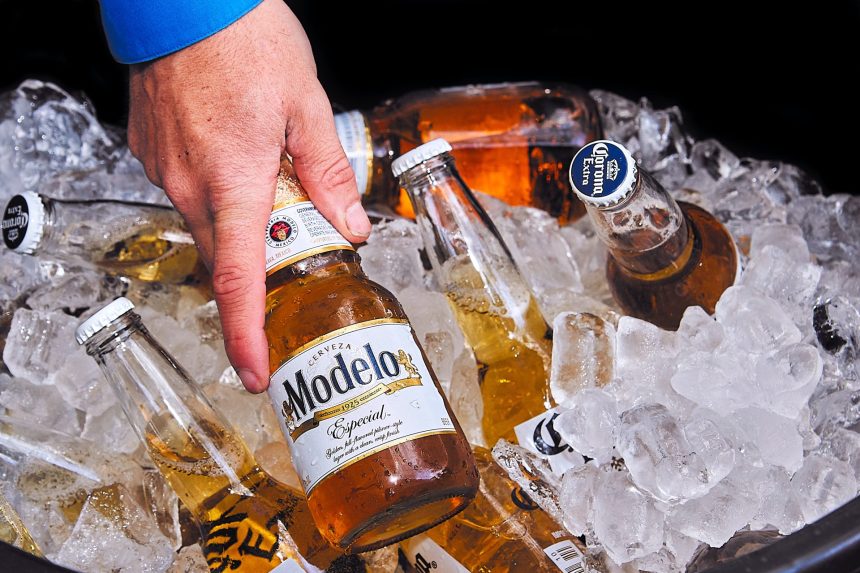The beverage industry is constantly evolving, with new trends and flavors emerging each year. One trend that has been capturing the attention of consumers in the United States is the surge in popularity of Mexican liquors. From tequila to mezcal, these traditional Mexican spirits have seen a torrid growth in recent years. In this article, we will explore the factors driving this trend and delve into the reasons behind the booming demand for Mexican liquors in the U.S.
The Rise of Mexican Liquors
A Cultural Phenomenon
Mexican liquors have a long and rich history that dates back centuries. Tequila, for instance, is one of the most iconic Mexican spirits and is made from the blue agave plant. It is deeply ingrained in Mexican culture and is often associated with celebrations and festivities. Mezcal, on the other hand, is a smoky and complex spirit made from different species of agave plants. It has gained a reputation as a premium and artisanal drink, appealing to the discerning palates of consumers.
Increasing Global Recognition
In recent years, Mexican liquors have gained international recognition and have become a staple in bars and restaurants around the world. Tequila, in particular, has seen a surge in popularity due to its versatility in cocktails and its association with trendy drinks like the Margarita. The rise of mixology and craft cocktails has also played a significant role in introducing Mexican liquors to a wider audience.
Growing Consumer Interest
Consumer preferences and tastes are constantly evolving, and there has been a shift towards more authentic and unique drinking experiences. Mexican liquors offer a distinct flavor profile and a sense of authenticity that appeals to consumers looking for something different. The rise of the craft spirits movement has also contributed to the growing demand for Mexican liquors, as consumers seek out small-batch and artisanal products.
Factors Driving the Growth
Changing Perceptions
One of the key factors driving the growth of Mexican liquors in the U.S. is the changing perception of these spirits. In the past, tequila was often associated with cheap shots and hangovers, but that image has shifted dramatically in recent years. Premium tequila brands, such as Don Julio and Patrón, have positioned themselves as high-quality spirits that can be sipped and savored, similar to fine whiskey or cognac. This shift in perception has helped elevate tequila’s status and attract a more discerning consumer base.
Cocktail Culture
The rise of the cocktail culture has been a major catalyst for the growth of Mexican liquors. Bartenders and mixologists are constantly experimenting with new flavors and ingredients, and Mexican spirits provide a unique and versatile base for creating innovative cocktails. The Margarita, for example, is a classic cocktail that has become a staple in bars worldwide. The popularity of this drink has not only boosted the demand for tequila but has also introduced consumers to other Mexican spirits such as mezcal.
Celebrity Endorsements
Another factor contributing to the rise of Mexican liquors is the influence of celebrities. Many well-known personalities, including actors, musicians, and athletes, have embraced Mexican spirits and have become ambassadors for these brands. Their endorsements and social media presence have helped generate buzz and attract a younger demographic to the category.
Embracing Sustainability
Sustainability has become an important consideration for consumers when making purchasing decisions. Mexican liquors, especially those made from agave plants, have a strong sustainability story. Agave plants are grown in harsh conditions and require little water, making them a more environmentally friendly choice compared to other crops. Additionally, some producers are implementing sustainable practices in their production processes, such as using recycled materials for packaging and implementing water conservation measures.
The Future of Mexican Liquors
The future looks bright for Mexican liquors in the U.S. market. The growing demand for authentic and unique drinking experiences, the rise of mixology, and the increasing appreciation for craft spirits all point towards a continued growth trajectory for Mexican liquors. As consumers become more educated about the category and seek out premium and artisanal products, we can expect to see an even greater variety of Mexican liquors available and a continued rise in their popularity.
See first source: CNBC
FAQ
What are Mexican liquors, and why are they gaining popularity in the United States?
Mexican liquors refer to alcoholic beverages produced in Mexico, such as tequila and mezcal. They are gaining popularity in the U.S. due to their rich cultural heritage, unique flavor profiles, and growing consumer interest in authentic and artisanal spirits.
What is the cultural significance of Mexican liquors like tequila and mezcal?
Mexican liquors have a deep cultural significance in Mexico and are often associated with celebrations and festivities. Tequila, made from blue agave, is a symbol of Mexican identity, while mezcal is known for its smoky and complex flavors.
Why have Mexican liquors seen increasing global recognition in recent years?
Mexican liquors, particularly tequila, have gained international recognition due to their versatility in cocktails, the rise of mixology, and the appeal of trendy drinks like the Margarita. The craft spirits movement has also contributed to their global popularity.
What factors are driving the growth of Mexican liquors in the U.S.?
Several factors are driving the growth of Mexican liquors in the U.S., including changing perceptions of tequila as a premium spirit, the influence of cocktail culture, celebrity endorsements, and a focus on sustainability in production.
How have perceptions of tequila evolved in recent years?
Tequila’s image has shifted from being associated with cheap shots and hangovers to that of a high-quality spirit meant for sipping and savoring, similar to fine whiskey or cognac. Premium tequila brands have played a significant role in this transformation.
How has cocktail culture contributed to the popularity of Mexican liquors?
The cocktail culture has provided a platform for bartenders and mixologists to experiment with Mexican spirits, creating innovative and flavorful cocktails. The Margarita, a classic cocktail made with tequila, has become a global favorite.
What role have celebrity endorsements played in the rise of Mexican liquors?
Many celebrities, including actors, musicians, and athletes, have embraced Mexican liquors and become ambassadors for these brands. Their endorsements and social media presence have helped generate interest among a younger demographic.
Why is sustainability a significant factor in the appeal of Mexican liquors?
Mexican liquors, particularly those made from agave plants, have a strong sustainability story. Agave plants are well-suited to arid conditions, requiring minimal water compared to other crops. Some producers also implement sustainable practices in their production processes.
What does the future hold for Mexican liquors in the U.S. market?
The future of Mexican liquors in the U.S. market looks promising. As consumers become more educated about the category and seek premium and artisanal products, the demand for Mexican liquors is expected to continue growing. This trend aligns with the increasing interest in authentic and unique drinking experiences.
Featured Image Credit: James Kern; Unsplash – Thank you!







